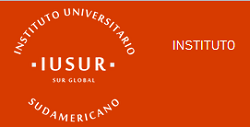Transformational International Educational Impact by Interests and Values of the State and Society
DOI:
https://doi.org/10.25087/resur16a3Keywords:
educational impact, State interests, Educational scenariosAbstract
The transformation and evolution of educational systems has been linked to universal world history. From the figure of "governess" in the middle age to the current innovative models worldwide, educational models and systems have been required that are attached to the needs of students but also to the interests of the State and society. This research is contextualized, worldwide, in the second half of the 20th century (World War II) and how this process impacted, as an example, an educational system that is highly recognized today: the Montessori Model. The importance of the Italian Method can be seen by being supported by the "Duce" Benito Mussolini in founding the Royal School of the Montessori Method and by his ideological "affinity" with Germany. However, there are also cases in which teachers and researchers coincide with the regimes, transforming their philosophical and critical position. Coming to cost them the oblivion of their great works, as is the case of Martin Heidegger. From the Mexican aspect, the revolutionary, developmentalist and current educational movement attached to the figure of the Autonomous University is considered. Considering it necessary to adopt a position towards Zemelman's reality, it is impossible to omit these events that impact education itself. Therefore, applying a qualitative methodology, using historical, dialectical and analytical-synthetic methods, and directed by a documentary technique, the main research question is addressed: How has it influenced political-social movements in Mexico and the world in the educational field? Delimiting chronology and eventually research, worldwide since the Second World War and in Mexico since the revolutionary process. Establishing that the future of national and world education is in the hands of the subjects that intervene in the international educational scenarios.
Downloads
References
Arjona, D. (27-08-2020). Las sombras de Montessori: la pedagoga afín al fascismo que abandonó a su hijo. Periódico El Confidencial. https://bit.ly/38F0ysE
Avelar, F. J. (23-11-2018). Revolución y educación (Primera entrega). Publicaciones Recientes de la Universidad Autónoma de Aguascalientes. https://bit.ly/37ZMmtT
Álvarez, R. (7-01-2022). María Montessori, educar para la paz. Discursos del Siglo XX. Periódico La Vanguardia. https://bit.ly/3wBBydA
Barreiro, H. (1987). La educación como cuestión de Estado: de Platón a la ilustración francesa. Revista Interuniversitaria. Ediciones universidad Salamanca. (6); enero – diciembre. https://bit.ly/3NlMu5W
Betancourt, W. (2015). El decir del silencio: un homenaje a Martin Heidegger. Praxis Filosófica; Nueva serie. (429; enero-junio. pp. 11 – 32. https://bit.ly/3LijE4Y
Palacio, A. (1978). La Revolución como ideología. Cárdenas.
Carrillo, J. P. (10/24/2016). Nuevas cartas confirman sin lugar a dudas el nazismo de Martin Heidegger. Revista Filosofía Pijama Surf. https://bit.ly/39xwWgE
Cohen, E. (2009). Julio Quesada Martín, Heidegger de camino al Holocausto. Revista Acta Poét. Reseñas. (30); 2, septiembre- noviembre. https://bit.ly/3LifABO
Espinosa – González, D; Pérez- Galmiche, G. y Martínez- Sánchez, A. C. (2021), Michel Foucault y su discurso más allá de lo filosófico. Un análisis político a la luz de la filosofía. Human Review, International Humanities. Global Knowledge Academics, (10); 1. pp. 131-136.
Esquivel, S. (2009). Michel Foucault educador (sobre la educación y el pensamiento contemporáneo). X Congreso Nacional de Investigación Educativa
Veracruz, Veracruz. https://bit.ly/3lpoSBo
Ferrater, J. (27-10-1985). La ingenuidad política. Periódico El País. https://bit.ly/3PFleBs
Fayé, E. (2018). Heidegger. La introducción del nazismo a la filosofía. Ediciones AKAL.
Hernández, P. V., Onofre, V. y Gómez, V. J. (2021). La pedagogía Montessori y su incidencia en la Educación Inicial. Revista Dilemas Contemporáneos: Educación, Política y Valores. (IX); 1, 30. https://bit.ly/3sv0ja3
García- Pelayo, R. (1975). Pequeño Larousse en color. Larousse- Noguer.
Nietzsche, F. (1999). Más allá del bien y el mal. 7ª ed. 3ª reimp. Editores Mexicanos Unidos.
Nieva, M. F. (2016). Prisión, Castigo y Control social. Plataforma de pensamiento Crítico. https://bit.ly/3NvnObn
Obregón, N. (2006). Quién fue María Montessori. Revista Contribuciones desde Coatepec. Universidad Autónoma del Estado de México. (10), enero-junio. pp. 149-171
Peña, C. (2010). Nacionalismo y educación: la reforma educativa del 2006 en México y su nueva versión de la independencia en los libros de texto de educación secundaria. Revista Historia Caribe. (V); 17. Universidad del Atlántico Barranquilla. pp. 9-28. https://bit.ly/3G4kO1j
Pérez, G. (13-05-2020). ¿Heil, Maestro Del Pensamiento Universal? (1). Martín Heidegger, Discurso en el Instituto de Anatomía patológica de Friburgo, agosto, 1933. Pueblo en Armas. Forjadores de la Libertad. https://bit.ly/3NjMoMb
Pérez - Galmiche, G. (2015). Comercio Electrónico. Benemérita Universidad Autónoma de Puebla.
Silva, V. E. (31-12-2020). El legado educativo de la Revolución Mexicana. Universidad Intercontinental. https://bit.ly/3NpsEH6
Steiner, R. (2022). ¿Qué es antroposofía? Casa Rudolf Steiner. https://bit.ly/3wBbEqz
Tlapapal, S. (08-22-2018). La educación después de la Revolución. Cambios y permanencias de los modelos educativos. Revista Cuadernos Fronterizos. Universidad Autónoma de Ciudad Juárez. (16); 5. pp. 13-15).
Von Trotta, M. (2012). Hannah Arendt. Heimatfilm, Bayerischer Rundfunk, Westdeutscher Rundfunk
Zemelman, H. (2003). Los horizontes de la Razón. Uso Crítico de la Teoría I. Dialéctica y apropiación del Presente. Las funciones de la totalidad. Anthropos; El Colegio de México.
Published
How to Cite
Issue
Section
License
Copyright (c) 2024 David Espinosa González, Alejandra Cedallin Martínez Sánchez, Gabriela Pérez Galmiche

This work is licensed under a Creative Commons Attribution-ShareAlike 4.0 International License.









